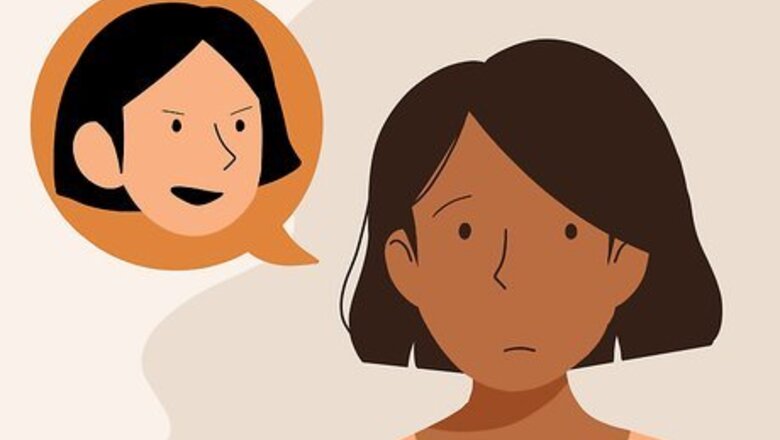
views
Recognizing Bad Friendships
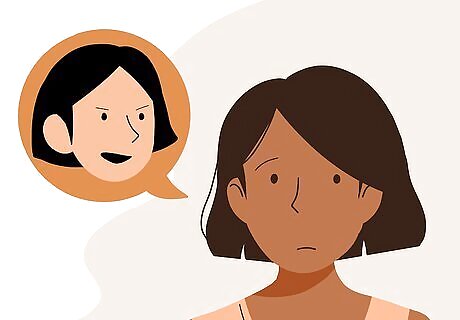
Notice who feels like a bad friend. Notice who makes you uncomfortable, pressures you to do things you or parents don’t agree with, or teases you when you don’t want to do the things they want to do. These types of friends are bad influences, because they don’t respect your opinions and values. Instead, they try to pressure you and make you feel guilty if you don’t agree with them.Look out for friends who: Boss you around Use drugs Are disrespectful or mean to others Are destructive of property or violent Try to manipulate you Make you feel bad about your eating habits or body Belittle your ideas or opinions
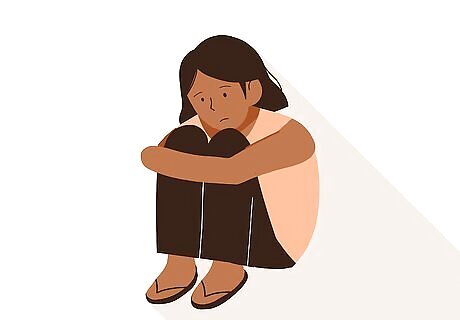
Realize the effects this friend has on you. You’ve probably been noticing for awhile that this friend has a bad influence on you, but maybe you’ve been trying to give them more chances. You probably even defend them to your parents or other friends who object to the way they treat you. Take some time to think about the effect these friends have on you. Ask yourself if you feel: Used Drained Stressed out Unsupported Trapped Guilty for things you’ve done with the friend
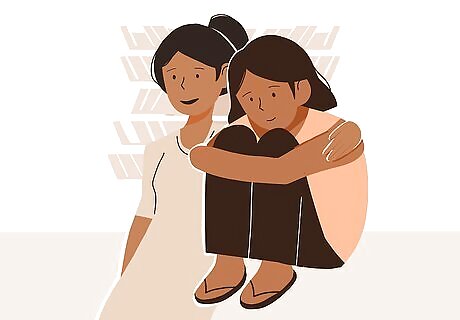
Ask for help. If you are having trouble saying “no” to or walking away from a friend who’s a bad influence, ask for help from a more trusted friend, your parents, or the school counselor. These people can help support you and make you feel better for the next time you face that friend. Other people can help give you a more objective opinion about if the friendship is a good one or worth saving. Depending on what your friend has been doing, your parents may want to talk to their parents. They may also want you to spend less time with those friends or spend time with them in safer ways, like at home.
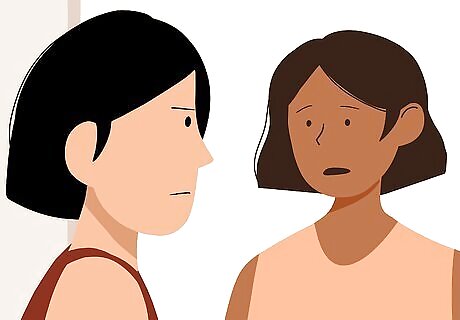
Stick up for yourself. Confronting someone who has upset you or is a bad influence can be hard, but you’ll have to take responsibility and try, otherwise they’ll just keep treating you the same way. By talking to them, you’re showing you care about yourself and them. Keep in mind that they may become angry or not understand. Try to focus on your friend’s behavior you disagree with, rather than criticizing them. You can say, “I know you’re a good person and I know you’ve been having a hard time since your parents divorced. But I don’t want to be around your smoking and drinking at school. I feel unsafe when you do that and I’m worried about you.”
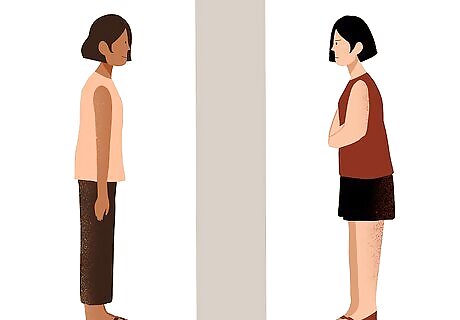
Set boundaries with your friend. To protect yourself if you still want to be around the friend, you’ll need to set some boundaries so that they know they can’t treat you that way anymore. You’ll have to be direct and clear about what you need from them and what is not okay with you. Limit the time you spend with that friend Express your feelings and needs honestly Leave situations where your friend offends you or puts you in danger Don’t force them to change, that’s up to them
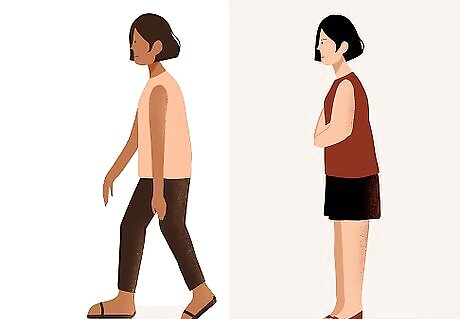
End the friendship. If your friend continues to drain you, stress you out, or otherwise remain a bad influence on you, end the relationship. You cannot force them to change, but you also have to respect yourself and listen to your needs. Let your friend know that you’re ending the friendship not because of who they are as a person, but because of their actions and how they’ve made you feel. You can say, “I really care about you, but our friendship isn’t working for me. It doesn’t seem our interests are the same and I don’t feel good about myself in this friendship.”
Moving on From Bad Friendships
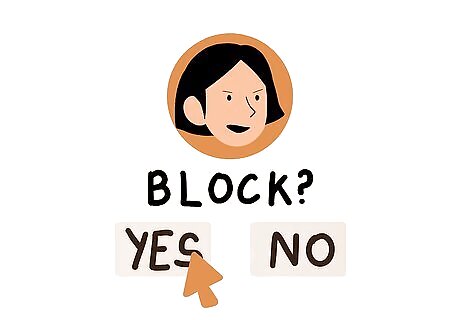
Stay away. Once you’ve ended the friendship, it may be difficult to completely avoid friends who are a bad influence, particularly if you’re in the same classes, live close to each other, or have mutual friends. It will be awkward for awhile, particularly if there are hurt feelings involved, but it’s important to be firm in your decision in taking time apart. To help you stay away you can: Defriend or unfollow them on social media Avoid talking about them with your mutual friends Avoid answering any texts or phone calls from them Avoid sitting next to them in class or at other events
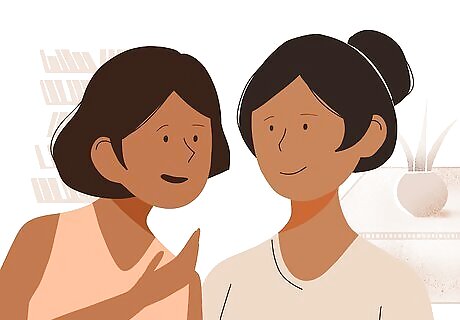
Overcome hurt caused by the bad friendship. Even if you were ready for the friendship to end, breaking up with a friend can take a toll on you. Take time to move on and overcome the hurt caused by your bad friendship. Allow yourself to process any feelings you have about the friendship ending, either on your own, with a parent or loved one, with a good friend, or with a counselor. Cry and let yourself be sad Write a goodbye letter, but keep it for yourself
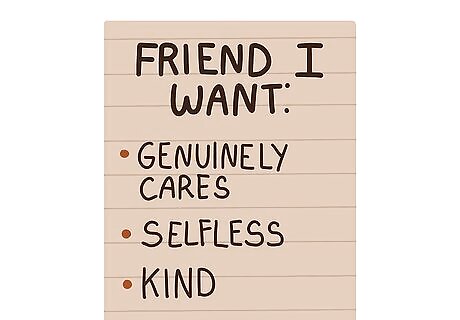
Determine what you want in a friend. Ask yourself what qualities most troubled you about the bad friendship, and how you can keep that from happening again. Good friendships are well balanced. Each friend gets their needs met fairly equally, and you’ll feel safe, supported, and appreciated in a good friendship. You’ll want friends who are there for you in good times and in bad. Look for people who: Build you up Genuinely care about how you are Don’t focus only on themselves

Try to make new friends. Once you know the types of people you want to be friends with and the types you’re trying to stay away from, put yourself out there. Look for people who have similar interests as you and ask to spend time with them. You can also try new activities or join a club at school to meet new, different kinds of people. It might be uncomfortable or scary at first, just like asking someone out on a date. You can say, “Hi, I noticed your t-shirt. Do you like that band, too? I heard they’re coming out with a new album this weekend. Do you want to go check it out at the record store with me sometime?”
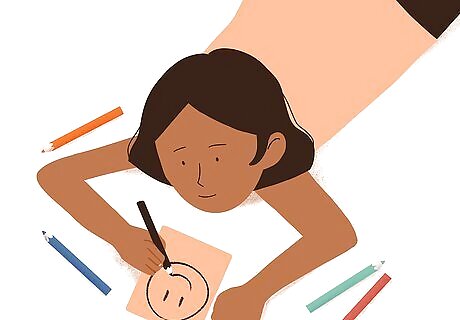
Spend time with yourself and your family. If you’re having trouble making new friends, or just aren’t ready, focus on yourself. Make time for yourself by exploring new hobbies, focusing on school, and doing extracurricular activities that you like. Spend time with your family doing things you enjoy. Remember that friends are an important part of life, but they’re not the only part! Take some time away from friends to build back up your sense of self-esteem and self-confidence.
Helping Your Kids with Bad Friendships
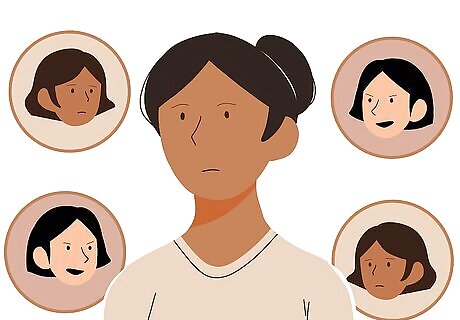
Take a step back. Before you’re tempted to talk to your child about their bad influence friend, think about what’s making you react to their friend in that way. You might be putting all the blame on your child’s friend, when in fact there’s something going on with your child that’s pushing them toward that friend. Understand that it’s normal during adolescence for your child to try to fit in and imitate their peers, so it might not be only about peer pressure or negative influence from the friend.
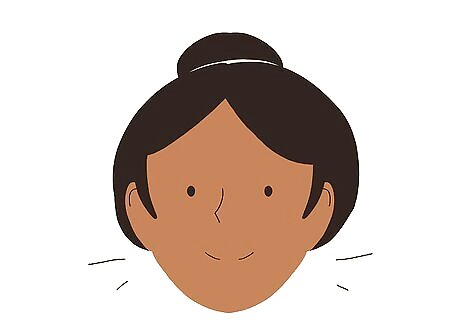
Avoid always criticizing. Even if you don’t like your child’s friends or the way they treat your child, it’s important to avoid only giving negative feedback about their friends. This will only push your child further toward those friends and push them away from you. They’ll get angry and defensive and will be less likely to come to you about that friend in the future. Seek out positives. You can ask, “What do you like about your friend?” or “What do you get from this friendship?” Let them know they have choices. You can say, “You don’t have to spend time with those friends. You don’t have to be treated this way.”
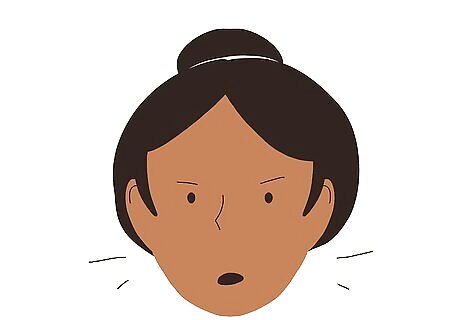
Be clear about inappropriate behavior. When your child’s friend does something you’re not happy about, like talking back to you or stealing something from your home, be clear and direct with your child about the behavior you don’t like. Don’t judge the friend’s personality or character. Be clear about what limits you’ll have for your child and that friend from now on. You can say, “I’m sure your friend is a good person, and I don’t know everything they’re going through, but I don’t like that your friend stole beer from our refrigerator. I don’t want you to think it’s okay to do that, here or at someone else’s home. He isn’t allowed to come back over until he apologizes to me.”
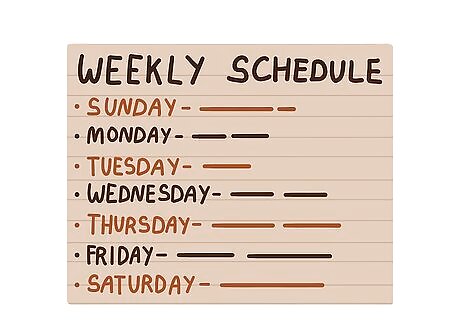
Set limits and structure. Sometimes you won’t be able to keep your child or teen away from friends who are bad influences just by talking to them. Instead, you can keep your child busy with structured activities during the week. Control more of their schedule by setting limits on who they spend time with, when, where, and for how long. If you have a child 12 or under, you can plan visits to relatives, schedule doctors’ appointments, or schedule time with other friends instead of allowing them time with bad influences. When they do spend time with the bad friend, make sure it’s at your house or that you’re nearby and can listen in on interactions. If you have a teenager, you can limit the nights they’re allowed to go out and make sure you know what their plans are when they do go out. Let them know their activities with friends have to be approved by you first, and enforce consequences if you find out they did something other than what they first told you.
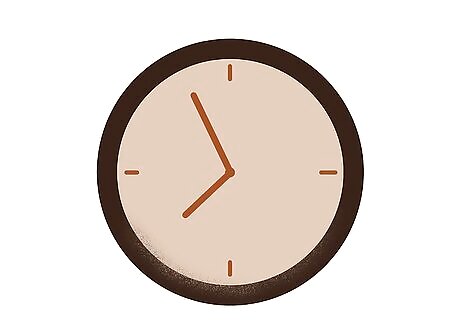
Be patient. Friendships come and go during adolescence. Once your kids reach high school, their brains and identities are developing even more. They'll start to feel more secure in who they are and what they believe, and they won't be as easily swayed by friends and peer pressure. Be patient with this process and trust that as long as you support their independence while providing them with some structure and limits, they'll make good choices in friends.




















Comments
0 comment